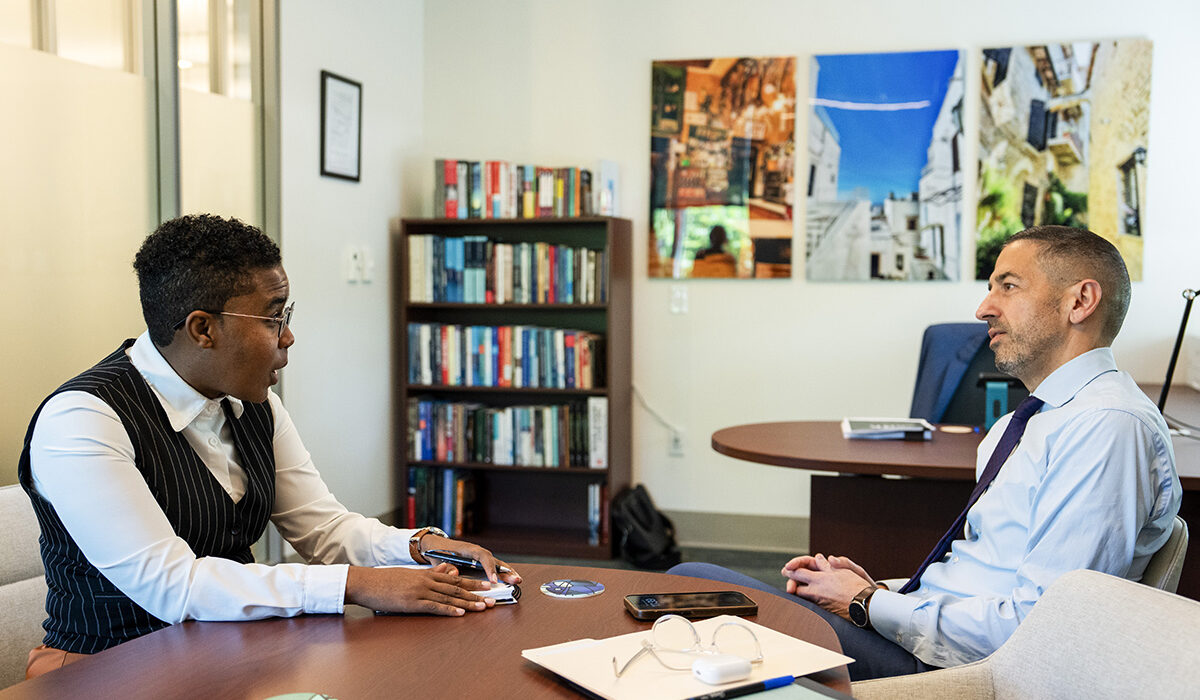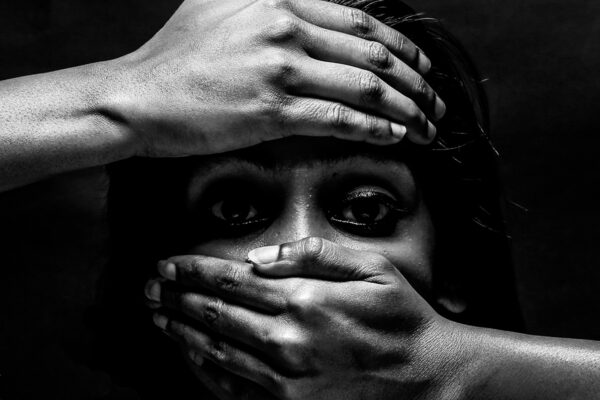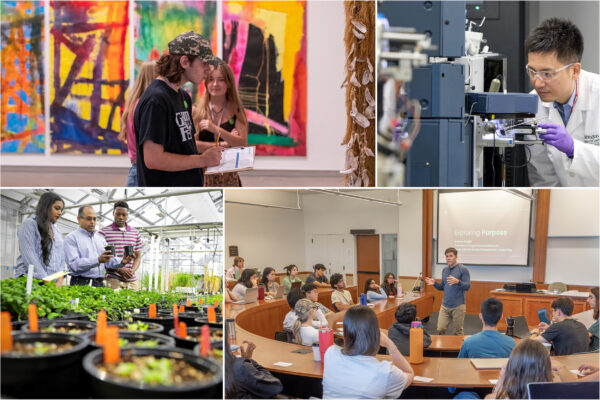The Robert Wood Johnson Foundation (RWJF) has awarded a $3 million grant to a team at the School of Public Health at Washington University in St. Louis to transform how health research is conducted and how it drives real-world policy change.
The three-year initiative is co-led by Salma Abdalla, MBBS, DrPH, an assistant professor, and Sandro Galea, MD, DrPH, the Margaret C. Ryan Dean of the School of Public Health and the Eugene S. and Constance Kahn Distinguished Professor in Public Health. The WashU team is partnering with the Alliance for Health Policy and Systems Research (AHPSR), a global leader in community-engaged health policy.
“While decades of health research have shaped policies and improved outcomes, many of the leading — and preventable — causes of early death, such as smoking and air pollution, still remain poorly addressed by policy,” Abdalla said. “This project will focus on bridging the gap between health research and policy, leveraging cutting-edge data tools to enhance efficiency and impact.”
The project is grounded in four themes:
- Accelerating research-to-policy efforts: Delivering timely and actionable research that informs policy in real time, especially during public health crises.
- Communities as partners: Engaging communities as co-creators throughout every research stage, from shaping questions to interpreting data and driving change.
- Leveraging different forms of evidence: Integrating advanced technologies, methods from different disciplines, such as economics and sociology, and community stories in health research efforts.
- Changing academic ecosystems: Confronting structural barriers within academic research institutions to foster an environment that prioritizes policy relevance and the rapid application of findings.
This grant builds on momentum from “Disrupting Research and Learning for Health Equity,” a global meeting held in October and co-hosted by RWJF, the World Health Organization, AHPSR and Boston University, whose project team has since transitioned to WashU. The meeting called for a fundamental shift in global health research — one centered on actionable results, cross-sector collaboration and lived experience.
The WashU team will conduct systematic applied research to bridge the gap between scientific evidence and policy. This will include mapping exercises with diverse stakeholders, including community members and policymakers, to pinpoint specific barriers and opportunities in translating health research into action.
To put those ideas into practice, WashU is organizing international convenings, bringing together scholars, policymakers, local leaders and journalists at each site for open dialogue and immersive, place-based sessions. Each two-day event will produce real-time results, designed to be applied locally and shared globally.
But first, WashU will oversee a gathering in St. Louis that will highlight community-centered public health initiatives in the city.
Research teams in other countries will launch hands-on projects focused on rapid policy translation, leveraging digital tools, local knowledge and grassroots organizing. Their work will contribute to a growing body of equitable, community-driven health strategies.
To ensure broad reach and impact, WashU will manage a centralized website featuring case studies, podcasts, videos, academic publications and toolkits. Highlights from the international meetings will be shared through YouTube, Spotify, social media and partner platforms. A final co-edited book will summarize key findings.
Ultimately, this project aims to spark a new era of health research — one that is faster, more inclusive, highly responsive to policy needs and deeply integrated with the power of data and the realities of the communities it affects. This project is designed to lay the foundation for ongoing, evolving discussions in the field, ensuring its impact extends far beyond its initial implementation.



